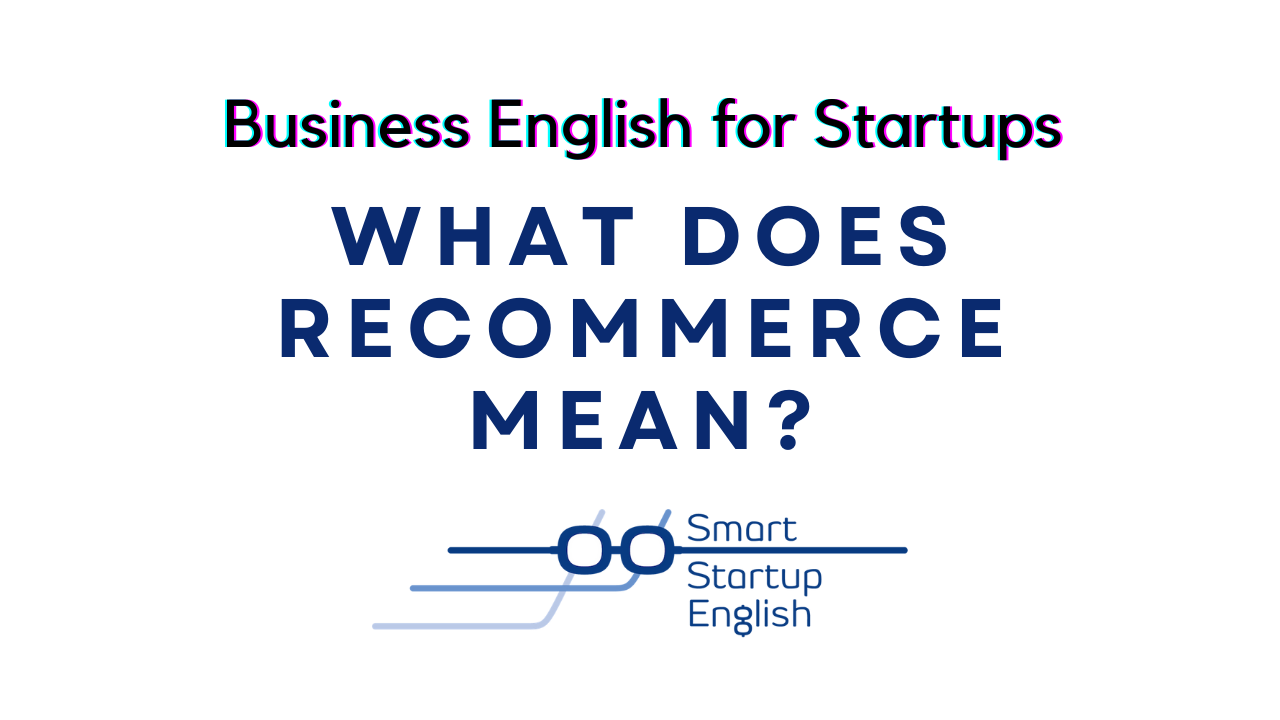Welcome to Smart Startup English, short lessons for non-native English speakers who work in the startup world. I’m Mickey, I’m a Business English teacher, and in every lesson, I explain one term and how it’s used in the real world.
The term we’re looking at today is recommerce. Re-commerce.
First, let’s see if you can remember the 3 R’s of sustainability. That’s right! It’s
Reduce
Reuse
Recycle
Now, can you guess what recommerce means?
Recommerce is a business model based on helping people reduce, reuse and recycle. With people being more and more concerned about making sustainable choices, recommerce platforms have seen a significant rise in popularity.
Resale platform ThredUp estimated that the secondhand market is projected to reach $77 billion by 2025. That’s a lot of money! (source)
But recommerce is not just about reselling items you no longer want. It’s also about swapping – that means offering something you don’t want anymore and getting something you want in return. Or renting things you don’t use as often, such as power tools or outdoor gear.
Here’s the term used in an article by Forbes:
“Consumers’ growing attention to sustainability issues is driving significant growth in the recommerce space, particularly online clothing resale.” (source)
And here are some examples of startups in the recommerce space:
On Swap Studio (from the Netherlands) you can offer things you no longer want in exchange for points. You can then “spend” those points on items you want on the platform.
The Renewal Workshop works with brands to take discarded textiles and turn them into new products.
BabyQuip is a website where you can rent baby gear when you’re traveling.
And everyone has heard of Poshmark, the marketplace for secondhand clothes and accessories.
That’s it for today! We learned about recommerce. Join us for a new lesson about the language of startups every Wednesday and Friday.
Here’s the episode audio.
If you want to listen to more episodes, here are a few links to get you started:
Episode 7 – Do startups need HR departments?
Episode 18 – Three strategies for effective candidate engagement
Episode 24 – Startup burnout
To get our episodes for free, you can also subscribe to the Smart Startup English podcast on iTunes, Soundcloud and Spotify.
If you want to keep practicing your Business English, sign up below to stay in touch. We’ll let you know when we release new episodes, and you’ll get access to ten free Business English audio lessons, worksheets and transcripts.

